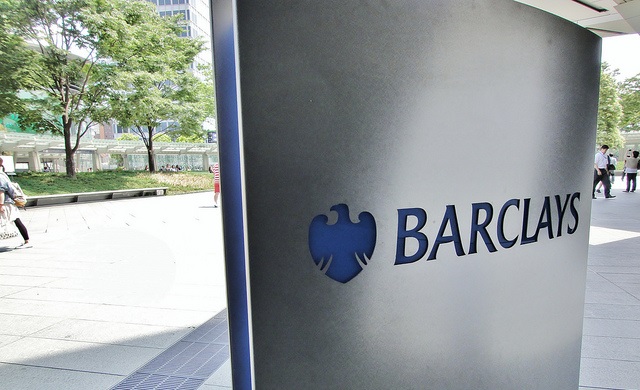Research shows 75% of potential clients will judge a brokerage’s credibility based on its website design alone. A poorly designed or slow-loading site actively drives away new business and undermines the trust that is essential for any financial services firm.

This creates a fundamental question of strategy and resources for every brokerage. Is it more effective to invest in hiring and managing a full-time in-house development team, or to partner with a specialised agency that has a proven track record?
The Case for Building an In-House Team
Building a website with your own in-house team is the traditional path for many established firms. The primary appeal is straightforward: achieving maximum control over the development process and having a team that is fully dedicated to your business and its long-term vision.
The Advantages of an In-House Team
Having a team in the next office provides unparalleled access and communication. You have daily oversight, and the team’s focus is 100% on your project, allowing them to develop a deep understanding of your brand, compliance requirements, and specific business goals over time.
This structure also simplifies integration with other departments. Your in-house developers can work directly with your marketing, sales, and IT teams, ensuring the website connects seamlessly with your existing proprietary software, CRM, and internal workflows without involving third parties.
Hidden Costs and Operational Risks
The most significant challenge is the cost. Recent market data shows that assembling even a minimal team—a senior developer (~$130k), a UX/UI designer (~$100k), and a project manager (~$110k)—can exceed $340,000 in annual salaries alone, before factoring in benefits, taxes, and software licenses.
Beyond salary, there are significant time and HR costs. Industry data indicate that the average time to hire a single qualified developer can be 45-60 days. This means your project can be delayed for months before any actual development work begins, creating a major opportunity cost.
Once that team is finally assembled, the challenge shifts to retention. The tech industry has a high turnover rate, often exceeding 13% annually. Losing a key developer midway through a project can be catastrophic, leading to severe delays and the high cost of recruiting and onboarding their replacement.
The in-house path offers ultimate control, but it requires a massive and continuous investment in talent, time, and resources. It is a long-term commitment that extends far beyond the initial website launch.
The Argument for a Specialized Agency
Partnering with a specialized agency presents an alternative path centered on leveraging external talent for a specific, high-quality outcome. This model is increasingly popular in the financial industry for its predictability and depth of available expertise.
The Advantages of a Specialized Agency
Industry benchmarks consistently show that a dedicated agency can launch a complex, professional brokerage website in 3-4 months. This is often less than half the time it would take to hire, onboard, and manage a new in-house team from scratch.
Hiring an agency provides instant access to a full spectrum of specialists. For a single project fee, you get a project manager, a UX strategist, a UI designer, multiple developers, and an SEO expert. Replicating this level of diverse talent in-house would be prohibitively expensive.
This model also presents a clear financial case. A fixed project fee, often between $50,000 and $150,000, is a calculated one-time investment. It directly contrasts with the $340,000+ recurring annual salary burden needed to maintain even a minimal in-house development team.
The Realities of a Partnership
A successful agency relationship is built on a foundation of clear communication. A detailed project brief that outlines your brand, target audience, and compliance needs helps align the agency’s work with your business objectives from day one.
Many agency relationships transition into long-term partnerships for ongoing maintenance, security, and performance optimization. This retainer model offers continuous expert support without the financial commitment and HR overhead associated with hiring full-time staff.
Ultimately, partnering with an agency offers a compelling mix of deep expertise, speed to market, and predictable costs. For most brokerages focused on growth, it represents the most efficient path to establishing a high-quality, professional digital presence.
In-House vs Agency: Questions to Answer
There is no single “best” answer when choosing between an in-house team and an agency. The right decision depends entirely on a realistic assessment of your brokerage’s specific resources, priorities, and long-term business goals.
To find the right path for your firm, start by asking these four critical questions.
- What Is Your Real Budget?
The decision often begins with financials. Is your business better prepared for a significant, one-time capital expenditure for an agency project? Or does your financial model favor a consistent, long-term operational expense like the monthly salaries of an in-house team?
- How Critical Is Your Timeline?
Speed to market is another crucial factor. If you need to launch a professional website quickly to capitalize on a market opportunity, an agency holds a distinct advantage. A specialized team can start immediately and often deliver a complete project in a fraction of the time it would take to hire and train new staff.
- What Talent Do You Already Have?
Conduct an honest audit of your current team’s capabilities. Do you already have experienced developers, UX/UI designers, and project managers on staff? If the answer is no, the significant time and cost required to recruit, hire, and onboard a competent team must be factored into the in-house decision.
- What Is Your Long-Term Vision?
Think about your needs beyond the initial launch. Does your long-term roadmap involve constant, major feature development that would justify a full-time, dedicated team? Or is your primary need a stable, high-performance website with periodic updates—a model that is often better suited to an agency support retainer?
The Agency Path with Website Studio Agency (WSA)
A recent partnership between technology and liquidity provider B2BROKER and the specialized firm Website Studio Agency (WSA) provides a clear look at a modern, streamlined approach to brokerage website development.
The stated goal of the collaboration is to provide brokers with a single, streamlined process for launching a website that is both visually compelling and fully integrated with essential brokerage technology.
The service is structured into tiered packages, a strategy designed to cater to brokerages at different stages of growth. The offerings—labeled Start, Start Plus, and Premium—range from solutions for new ventures to fully integrated platforms for established enterprises, allowing firms to choose a scope that matches their immediate needs and budget.
For example, the entry-level package delivers a professional, SEO-ready site using high-quality components for speed and efficiency. Higher tiers build on this by adding advanced CRM and client cabinet integrations, directly addressing the complex operational needs of scaling brokerage firms.
The “Premium” tier, in contrast, offers a fully custom, multi-page site with advanced CRM and client cabinet integrations for established firms. This tiered structure allows a broker to launch with a cost-effective solution and then scale its web presence as the business grows.
This model highlights a significant industry trend toward specialized, full-service partnerships. For brokerages, this approach de-risks the development process and provides a more direct path to launching a credible, high-performance online platform.
Check out Website Studio Agency for a full pricing breakdown.
Your Website, Your Strategic Choice
The decision to build a brokerage website in-house or partner with an agency is a fundamental trade-off between long-term control and immediate efficiency. The first path offers total control at a high, recurring operational cost; the second provides deep expertise and speed for a fixed project budget.
The path you take must align with your firm’s financials, timeline, and long-term goals. Regardless of the approach, the end result is non-negotiable: a fast, secure, and professional website that establishes credibility and converts visitors into active clients.
Contact the WSA team to get started.

 Hot Features
Hot Features













